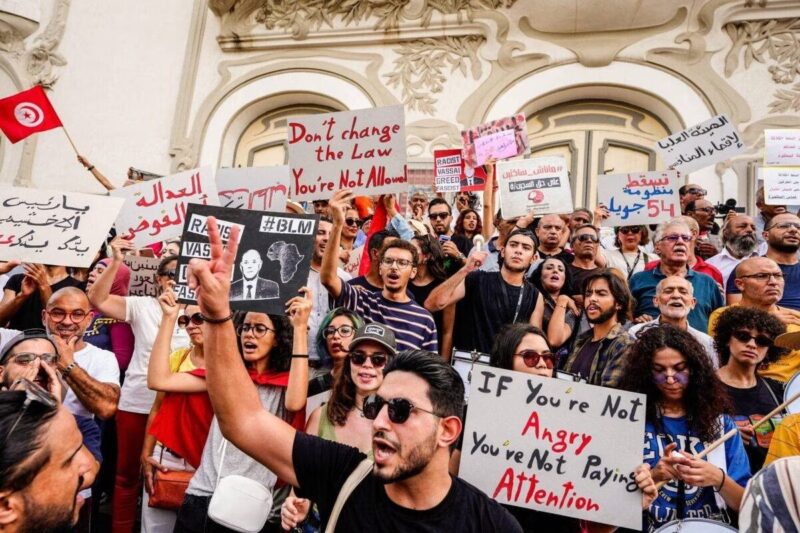Freedom’s Fadeout: Tunisia’s Media Muzzled

The clatter of Zied Dabbar’s voice echoed through the mostly empty press room at the National Syndicate of Tunisian Journalists headquarters.
It was a scene that would have been unimaginable just a few years ago. Four microphones sat on the table, all belonging to foreign media outlets. No Tunisian journalists dared to show up. Fear had choked their voices, just as it had choked the life out of their profession.
Dabbar’s words, published later that day in Al Quds newspaper by the respected media figure Mohammed Krishan, painted a grim picture. He spoke of journalist Mohamed Bouglab, wasting away in prison, his body ravaged by diabetes and other ailments contracted during his incarceration.
Bouglab, a man whose voice once resonated with passion and criticism, was now a prisoner of conscience, silenced by Decree 54, a law that cast a long shadow over freedom of expression in Tunisia.
He wasn’t alone. Murad Zeghidi, Burhan Bessis, Shatha Al-Hajj Mubarak, Sonia Dahmani – the list of imprisoned journalists grew longer with each passing day. These were the individuals who had dared to challenge the official narrative, the “salt” that had given flavor to Tunisia’s media landscape. Now, their voices were replaced by the bland, sycophantic pronouncements of state-controlled media.
The irony was bitter. Once, the imprisonment of a single journalist under Ben Ali’s regime would have sparked outrage. Now, journalists were disappearing into the abyss of the prison system without a whisper of protest. The public, weary and disillusioned, seemed to accept this new reality.
On television, the same faces droned on, spewing praise for the authorities and celebrating trivial achievements as if they were national triumphs. The newspapers, once vibrant with diverse opinions, had become echo chambers of the government line. One daily, notorious for its shameless sycophancy, continued to churn out pages of nauseating praise, a testament to the depths to which journalism had sunk.
Meanwhile, serious publications like Acharaa Al-Magharibi were forced to shut down, their voices silenced by a regime that feared the truth. The few journalists who remained, like Mohammed Krishan, fought on with admirable courage, swimming against the tide of oppression. But for how long could they hold out? The future of journalism in Tunisia looked bleak, its light flickering in the face of an increasingly oppressive regime.
How to submit an Op-Ed: Libyan Express accepts opinion articles on a wide range of topics. Submissions may be sent to oped@libyanexpress.com. Please include ‘Op-Ed’ in the subject line.
- Freedom’s Fadeout: Tunisia’s Media Muzzled - November 01, 2024
- Italy makes major power play in Libya - November 01, 2024
- Footballer sidelined over shorts dispute - November 01, 2024


